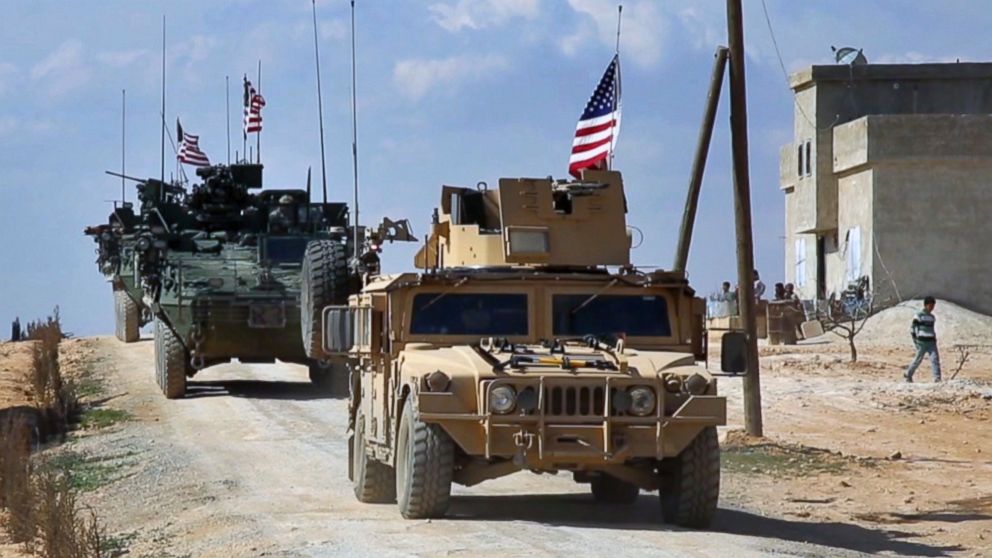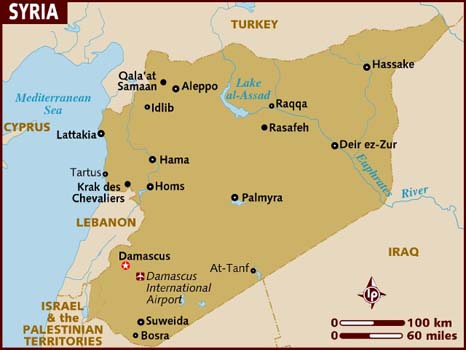US withdraws troops from Syria
December 21, 2018 | Expert Insights

President Trump has ordered the withdrawal of 2,000 American troops from Syria, bringing a sudden end to a military campaign that largely vanquished the Islamic State.
The withdrawal is seen as ceding a strategically vital country to Russia and Iran, which still maintain boots on the ground in Syria.
Background
Over the span of several centuries, Syria, which was at the forefront of the Islamic Caliphate witnessed multiple invasions and occupations. The Romans to the Crusaders and the Turks have tried to gain control of the region.
The Syrian Civil War has been going on since 2011. It began during the Arab Spring protests and due to resentment towards the government of President Bashar al-Assad. The war is being fought by several factions: the Syrian government and its allies, a loose alliance of Sunni Arab rebel groups (including the Free Syrian Army), the majority-Kurdish Syrian Democratic Forces (SDF), Salafi jihadist groups (including al-Nusra Front) and the Islamic State of Iraq and the Levant (ISIL), with a number of countries in the region and beyond being either directly involved, or rendering support to one or another faction.
The Syrian government has often been accused of conducting chemical warfare against its own citizens in rebel regions. In April 2017, news emerged of an alleged chemical attack on a rebel-held Syrian town. At least 74 people, including 11 children, were killed in Khan Sheikhoun, Idlib province. At the time, the Syrian government once again denied culpability and Russia backed the Assad government. US President Donald Trump launched 59 Tomahawk missiles in response just two days later.

Analysis
In overruling his generals and civilian advisers, Mr Trump fulfilled his frequently expressed desire to bring home American forces from a messy foreign entanglement. But his decision, conveyed via Twitter on Wednesday, plunges the administration’s Middle East strategy into disarray, rattling allies like Britain and Israel and forsaking Syria’s ethnic Kurds, who have been faithful partners in fighting the Islamic State.
The abrupt, chaotic nature of the move — and the opposition it immediately provoked on Capitol Hill and beyond — raised questions about how Mr Trump will follow through with the full withdrawal. Even after the president’s announcement, officials said, the Pentagon and State Department continued to try to talk him out of it.
“We have won against ISIS,” Mr Trump declared in a video posted Wednesday evening on Twitter, adding, “Our boys, our young women, our men — they’re all coming back, and they’re coming back now.”
“We won, and that’s the way we want it, and that’s the way they want it,” he said, pointing a finger skyward, referring to American troops who had been killed in battle.
The White House did not provide a timetable or other specifics for the military departure. “We have started returning United States troops home as we transition to the next phase of this campaign,” Sarah Huckabee Sanders, the White House press secretary, said in a statement. Defence Department officials said that Mr Trump had ordered that the withdrawal be completed in 30 days.
The decision brought a storm of protest in Congress, even from Republican allies of Mr Trump’s like Senator Lindsey Graham of South Carolina, who said he had been “blindsided.” The House Democratic leader, Representative Nancy Pelosi of California, suggested that the president had acted out of “personal or political objectives” rather than national security interests.
Like many of Mr Trump’s most disruptive moves, the decision was jolting and yet predictable. For more than a year, and particularly since the Islamic State has been driven from most of its territory in Syria’s north, he has told advisers that he wanted to withdraw troops from the country.
Counterpoint
President Trump’s decision to withdraw the troops does not have strategic reasoning behind it. It can be safely assumed that the troops have been withdrawn only to satisfy his election promises. Additionally, the US never committed a large-scale military presence in Syria, and a majority of the troops in the country are military advisers, logistics and other military support personnel who are partnering anti-Assad forces such as the Kurdish YPG.
Abandoning the Kurdish allies also would cripple future American efforts to gain the trust of local fighters for counterterrorism operations, including in Afghanistan, Yemen and Somalia.
Assessment
Our assessment is that the US’s decision to withdraw troops from Syria is a strategic victory for Russia, Iran and the Assad government. We believe that the absence of US troops will enable Pro-Assad forces to launch a sweeping counter-offensive against the remaining resistance forces such as the Kurdish YPG.








Comments